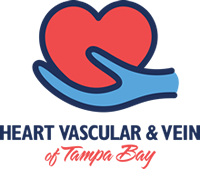Unexplained Fainting
Brief Overview, Causes and Risk Factors of Fainting
UNEXPLAINED FAINTING
Fainting is a common problem accounting for 740,000 emergency department visits in the U.S. each year. Half of patients admitted to the hospital leave without a diagnosis. People faint for many reasons but it can be a sign of an underlying heart condition.
- Occurs when blood pressure drops and limits oxygen to the brain
- May also be called “passing out,” “blackout” or “syncope”
- Usually lasts only a few minutes, but may be followed by a period of confusion
- Affects all age groups and sometimes occurs in healthy people
- Can be a sign of an underlying medical condition
WHAT HAPPENS WHEN I FAINT?
Fainting, also called syncope, is a sudden loss of consciousness. It occurs when the blood pressure drops and not enough oxygen reaches the brain. There are times when fainting may look like a seizure.
CAUSES
Fainting can be caused by many things. Many patients have a medical condition they may or may not know about that affects the nervous system or heart. You may also have a condition that affects blood flow through your body and causes your blood pressure to drop when you change positions (for example, going from lying down to standing).
RISK FACTORS
While some causes of unexplained fainting are harmless, others may be serious. Heart-related causes, including abnormal heart rhythms, are among the most serious causes of fainting. Also, if you do not have any warning signs before you faint, you may fall unexpectedly and be injured.
For more information on syncope, please review the patient brochure below:
HEART MONITORING CAN UNLOCK THE ANSWER
If your doctor suspects that your fainting is heart related, cardiac monitoring may be necessary.
Heart monitoring is used to either identify or rule out a heart rhythm disorder and to determine the right course of treatment. Types of heart monitoring vary in terms of how long they can be used and how information is captured. Common types of heart monitoring systems include:
- Holter Monitors
- Event Recorders
- Mobile Cardiac Telemetry Systems
- Insertable Cardiac Monitoring Systems
Information on this site should not be used as a substitute for talking with your doctor. Always talk with your doctor about diagnosis and treatment information.
